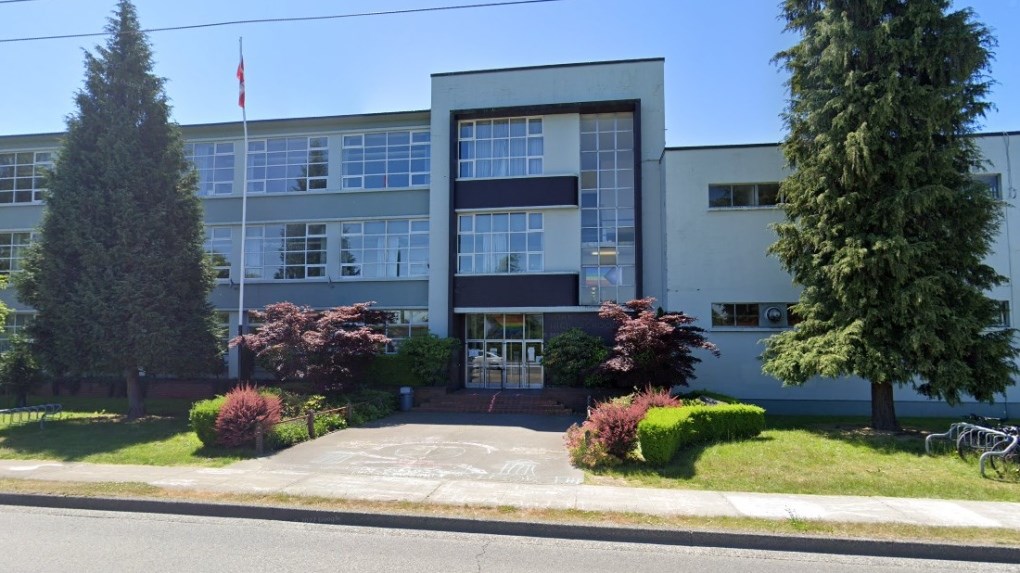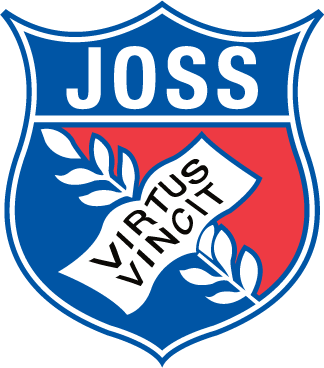Code of Conduct
Code of Conduct - Updated June 2024
John Oliver Secondary School
Code of Conduct

Statement of Purpose
John Oliver Secondary is committed to uphold a safe, inclusive, equitable, welcoming, nurturing, and healthy school environment.
- Promote clear behavioural expectations of respectful and responsible citizenship that lead to a culture of safety, caring and respect amongst everyone in the school and programs and at all school-events and activities
- The School Code of Conduct applies at school, during school-organized or sponsored activities, on school buses, and any behaviour even if outside of school or school hours, (including on-line behaviour), that negatively impacts the safe, caring, or orderly environment of the school, and/or student learning.
Conduct Expectations
- Acceptable Conduct
- Respecting self, others, and the school
- Contributing to a safe, caring, positive, inclusive, and peaceful environment
- Seeking to prevent violence and potentially violent situations, and demonstrating social responsibility by reporting such situations
- Engaging in purposeful learning activities
- Unacceptable Conduct
“Students shall not discriminate against others on the basis of Indigenous identity, race, religion, colour, ancestry, place of origin, marital status, family status, age, sex or sexual orientation, gender identity/expression, or physical or mental disability, or for any other reason set out in the Human Rights Code of British Columbia, nor shall a student publish or display anything that would indicate an intention to discriminate against another, or expose them to contempt or ridicule, on the basis of any such grounds.” Racism and discrimination will not be tolerated in our school.
- Behaviours that interfere with the learning of other, interfere with an orderly environment, or create an unsafe environment
- Acts of bullying, harassment, intimidation, or physical violence
- Illegal acts, such as possession, use or distribution of illegal or restricted substances
- Theft or damage to property
- Cyber-bullying, and other unacceptable online behaviours which interfere with the learning of others, or create an unsafe environment
Note: Behaviours (both acceptable and unacceptable) cited in the code of conduct are examples only and not an all-inclusive list.
- Rising Expectations
Students are expected to learn and mature as they move through successive grades, and as such the expectations progress towards increasing personal responsibility and self-discipline, as well as increasing consequences for inappropriate conduct/unacceptable behavior.
- Retaliation Prevention
All reasonable steps will be taken to prevent retaliation against a student who has made a complaint of a breach of a code of conduct.
Consequences
- Disciplinary action, wherever possible, is restorative rather than merely punitive. The school will treat seriously any behaviour that discriminates based on Indigenous identity, race, religion, colour, ancestry, place of origin, marital status, family status, age, sex or sexual orientation, gender identity/expression, or physical or mental disability.
- Repetitive or severe unacceptable behaviour may result in increased severity of subsequent disciplinary action. The age and maturity of students are considered when determining appropriate consequences.
- Special considerations may apply to students with special/diverse needs if these students are unable to comply with a code of conduct due to having a disability/challenge of an intellectual, physical, sensory, emotional, or behavioural nature.
- Responses to unacceptable conduct are consistent and fair.
- Students, as often as possible, are encouraged to participate in the development of meaningful consequences for violations of the established code of conduct.
- Notifications
The principal or designate has a responsibility to inform other parties of serious breaches of the code of conduct. These parties include:
- Parent(s) of student offender(s) and parent(s) of student victim(s) – in every instance
- School district officials
- Police and/or other agencies, as required by law
- School community, when deemed necessary, to reassure members that school officials are taking appropriate action
- Suspensions
In accordance with the School Act, Sec. 85 (2) (ii) and (d), the Board authorizes the principal or designate of any school in the district to suspend a student from attendance at school for up to five days.
Suspensions may be for the following reasons:
- because a student is willfully and repeatedly disrespectful to a teacher or to any other employee of the Board carrying out responsibilities approved by the Board;
- because the behaviour of the student breaches the District Code of Conduct or other policy and/or has a harmful effect on others or the learning environment of the school;
- because the student has failed to comply with the School Code of Conduct.
Suspensions over five days are made in consultation with the appropriate Director of Instruction as per District Student Code of Conduct, AP 350.
As per AP 350 7.7 an educational program must be provided.
School Moto
John Oliver COURAGE
COURAGE is a value statement that is intended to foster an environment of communication built on individual effort and mutual respect among students, teachers, and administrators, with the common goals of achieving progress, development, and success
Our Students, Staff and Parents developed the COURAGE code to extol the values that we expect the John Oliver Community to strive for:
COURAGE value statement
Compassion
Have empathy for everyone in your school and in your community. Acknowledge how people in our community have different lived experiences.
Optimism
Think positively because there is a solution to every problem. Have a positive open mind when viewing other cultures and learn about other views before making opinions.
Unity
Come together as one community and embrace our differences, supporting others’ opinions and ideals.
Responsibility
Own up to your actions and choices and be aware of the consequences. Have the courage to admit if you are wrong, take responsibility for it and offer amends.
Adaptability
Adjust to change and step out of your comfort zone to experience life. Understand that change happens and that you need to be able to embrace that change positively.
Gratitude
Recognize that there is always something for which to be thankful.
Engagement
Support each other and actively participate in the community, in school, and in your own life. Get involved and, demonstrating courage sometimes requires discomfort and that leads to growth.

